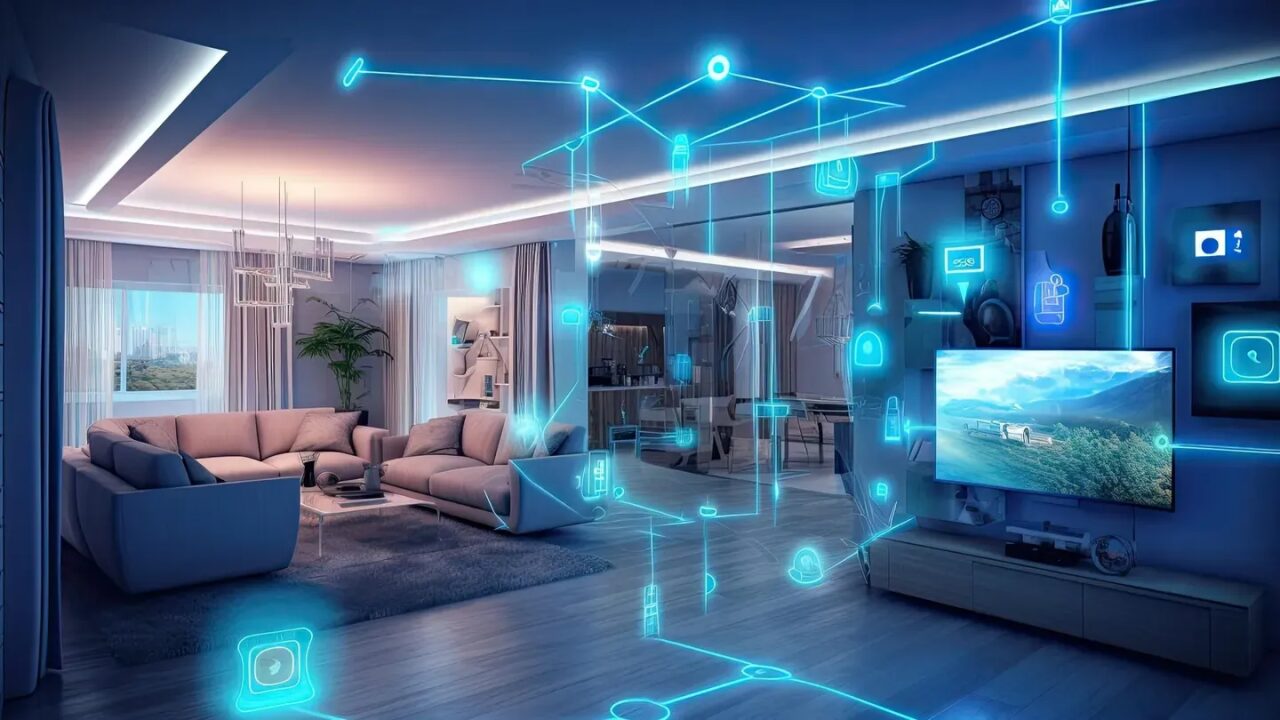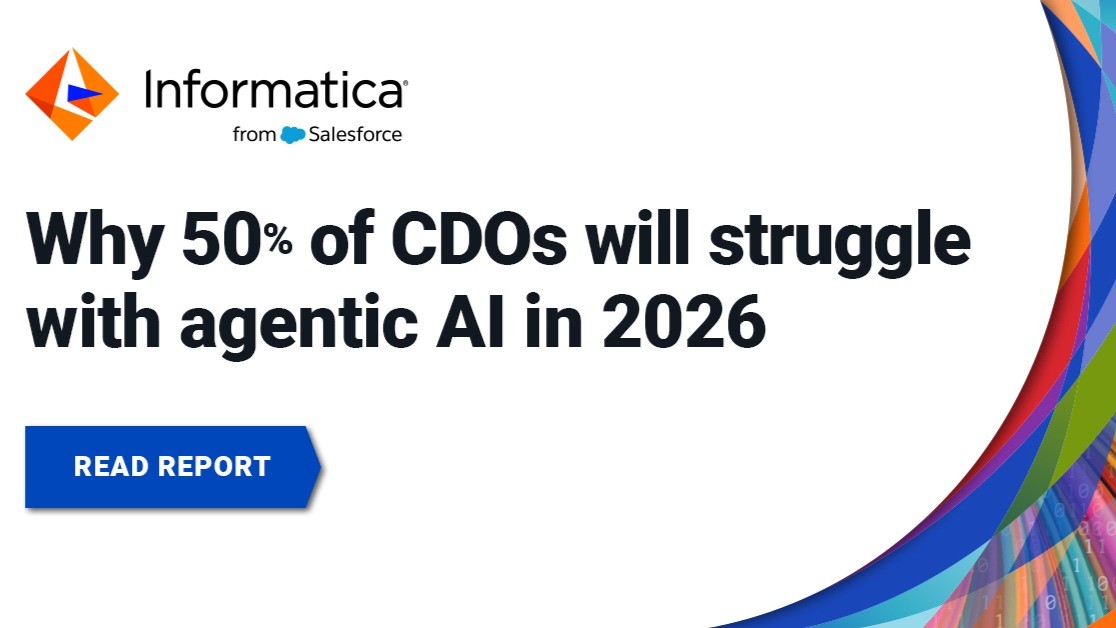The 10 Biggest Consumer Technology Trends Of 2026
18 November 2025
As enterprise technology leaders, it’s tempting to dismiss consumer tech as mere gadgets and gizmos. But history teaches us otherwise. The smartphone revolution, cloud storage adoption, and touchscreen interfaces all entered the enterprise through the consumer door, often carried in by employees who demanded the same intuitive experiences they enjoyed at home.
The consumer technology trends of 2026 aren’t just about shopping lists and entertainment systems. They’re preview indicators of the capabilities, expectations, and workplace demands your organization will face over the next 2-3 years. Understanding these trends now allows enterprise leaders to anticipate infrastructure needs, prepare security frameworks, and develop policies before these technologies appear uninvited in your workplace.

Here are 10 consumer tech trends that will reshape enterprise technology, whether you're prepared or not.
1. From Smart Home To Intelligent Home
What’s the difference? Well, smart home devices have been with us for a while, and often they aren’t really that smart—they’re just connected (think of lightbulbs, heating systems and kitchen appliances we can control over the internet). Truly intelligent homes, however, utilize AI to “think” and make decisions for us. This means AI assistants acting as virtual housekeepers, coordinating the activity of smart appliances, entertainment and security devices. What consumers experience as "intelligent homes" today becomes tomorrow's "intelligent workplace." The same AI orchestration consumers use to manage home appliances will soon coordinate enterprise IoT ecosystems, from HVAC optimization to automated conference room preparation.
2. Human-Centric Features In Consumer Tech
This can include screens that resemble works of art, designed to blend aesthetically into home environments, and speakers taking visual cues from sculpture. It also covers sensory control systems, allowing us to interface with technology in more human ways, like the neural controls developed by Meta for its next-gen glasses and haptic gloves, allowing users to feel objects in VR. Representing a combination of psychology and aesthetics, technology reminding us humans are in control, and it should exist and interact with us on our terms, will be a defining consumer tech trend in 2026.
3. Domestic Robots And Drones
At CES 2025, numerous robotic and autonomous devices designed to help with tasks from stacking dishwashers, conducting security patrols and even providing companionship were on display. In 2026, these could begin to receive mainstream adoption as we look to technology to help us manage increasingly busy lives. The consumer market is training your future workforce in human-robot collaboration while normalizing autonomous systems that enterprises are rapidly deploying for warehouses, security, and hazardous environments.
4. Next-Gen TVs
In recent years, TVs have become bigger and brighter, and that trend looks set to continue with the arrival of the latest micro-LED models. While this technology has been around for a while, manufacturing costs are dropping to levels that make sense for mainstream consumer brands like Sony and Samsung to include them in their 2026 ranges. The fact that they’re cheaper to build at super-size than current OLED screens means that screens measuring over 100 inches will become an increasingly common sight in homes. And Dolby Vision 2, expected to launch on next year's top-end models, promises sharper and brighter images than ever before.
5. Smart Cars
We’re still waiting for fully self-driving cars to eventually become a realistic proposition. But that isn’t stopping car makers from cramming their latest models with semi-autonomous and smart features. We can expect more vehicles with self-parking and advanced driver-assist features like hands-free, collision-avoidance, driver fatigue detection and in-car AI assistants in 2026.
6. Smart Glasses 2.0
Following some high-profile false starts, device manufacturers including Google and Meta are hoping 2026 will be the year smart glasses successfully crack the mainstream. What’s changed since Google canceled its original Glass project 10 years ago? Well, displays have gotten smaller and lighter, and batteries have improved, but most importantly, AI has matured to the point where features like in-line language translations, augmented reality navigation, and hands-free access to AI assistants are a more viable proposition.
7. Wellness Tech
Devices and associated online services designed to provide actionable insights into the state of our physical and mental health will continue to be big business over the coming year. New developments which could become common sights in our homes include smart mirrors that can measure heart rate and mental states while also reminding us to take medication, and mattresses that analyze sleeping position and breathing patterns in order to optimize firmness and improve the quality of rest.
8. More Screens
Long ago, office-bound workers discovered that having multiple computer displays can boost productivity. Today, those who prefer a less tethered, nomadic existence can benefit too, as dual and multi-screen laptops become increasingly fashionable. Laptop manufacturers, including Lenovo and Asus, will bring affordable models to the market. Phone makers aren’t being left behind either; dual-screen phones have been growing in popularity, and Samsung will reportedly join Huawei in offering a tri-screen model before the start of the year.
9. Dumb Phones
Proving that it isn’t always about chasing after newer and more capable technology, the market for scaled-down dumb phones, with pared-back functionality restricted to making calls and sending texts, is expected to grow in 2026. These are the perfect antidote for those who feel that modern smartphones encourage mind-numbing “doom scrolling” and other pointless mobile activities. Don’t think of it as a rejection of technology, though—it’s more about rejecting ultimately negative and potentially harmful behaviors and habits.
10. Wireless Power
With the proliferation of wi-fi and Bluetooth technology throughout our homes, power is the last holdout for cables in the home. But even these could soon be a thing of the past. Today’s wireless charges require contact between charger and device, but scientists in Japanhave used machine learning to develop the first wireless power transfer (WPT) system capable of transmitting power through the air. While it may be a few years before this one is truly consumer-ready, it’s a technology we’re likely to hear more about in 2026.
Consumer technology trends aren't frivolous distractions from "serious" enterprise concerns; they're early warning systems for coming workplace transformations. Every trend in this list represents capabilities your employees will expect, technologies your competitors may adopt, and infrastructure decisions you'll need to make.
The question facing enterprise technology leaders isn't whether these consumer trends will impact your organization. The question is whether you'll anticipate and prepare, or react and scramble.
Smart enterprises are already piloting these technologies, developing policies, and building relationships with vendors. They're treating consumer tech trends as intelligence gathering for future enterprise initiatives.
Related Articles
Why Reasoning Models Are The Next Leap In AI
By now, “smart” versions exist of just about every home appliance, gadget and gizmos we can think of. However, manufacturers continue[...]
The AI Trust Paradox: Why Confidence Is Rising Faster Than Readiness
By now, “smart” versions exist of just about every home appliance, gadget and gizmos we can think of. However, manufacturers continue[...]
Is The AI Job Apocalypse Real Or Overhyped?
By now, “smart” versions exist of just about every home appliance, gadget and gizmos we can think of. However, manufacturers continue[...]
The CEO AI Gamble: Why Half Of Business Leaders Believe Their Jobs Depend On Getting AI Right
By now, “smart” versions exist of just about every home appliance, gadget and gizmos we can think of. However, manufacturers continue[...]
AI Trust Paradox: Why Confidence Is Rising Faster Than Readiness
By now, “smart” versions exist of just about every home appliance, gadget and gizmos we can think of. However, manufacturers continue[...]
The 5 Most Powerful Agentic AI Browsers You Can Try Today
By now, “smart” versions exist of just about every home appliance, gadget and gizmos we can think of. However, manufacturers continue[...]
Sign up to Stay in Touch!
Bernard Marr is a world-renowned futurist, influencer and thought leader in the fields of business and technology, with a passion for using technology for the good of humanity.
He is a best-selling author of over 20 books, writes a regular column for Forbes and advises and coaches many of the world’s best-known organisations.
He has a combined following of 4 million people across his social media channels and newsletters and was ranked by LinkedIn as one of the top 5 business influencers in the world.
Bernard’s latest book is ‘Generative AI in Practice’.










Social Media